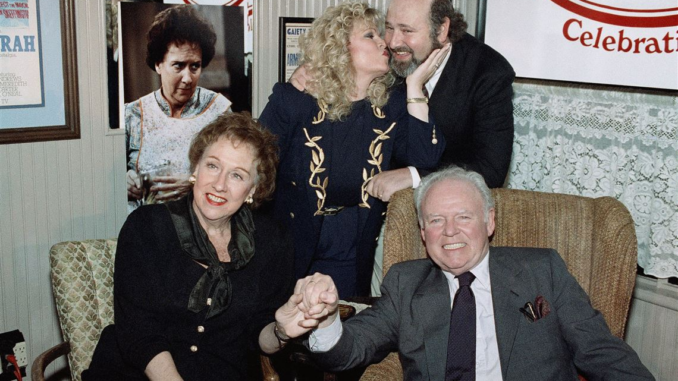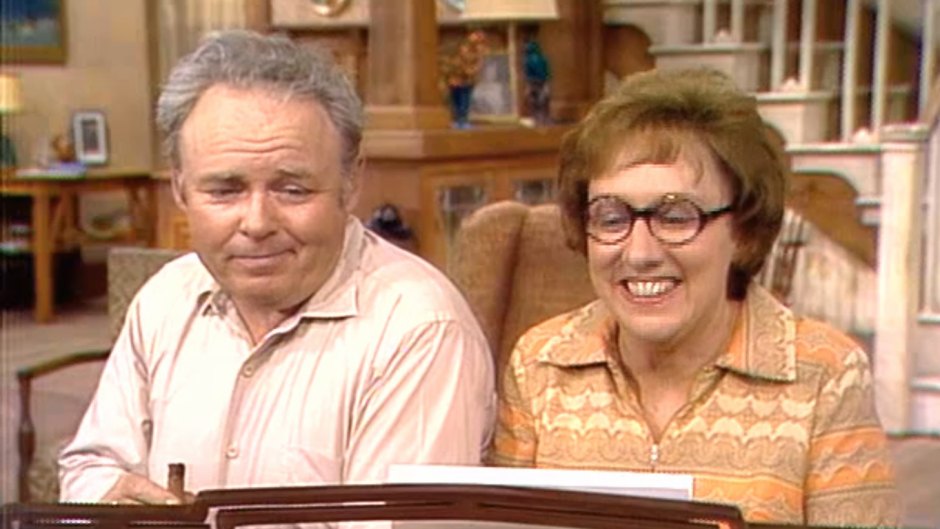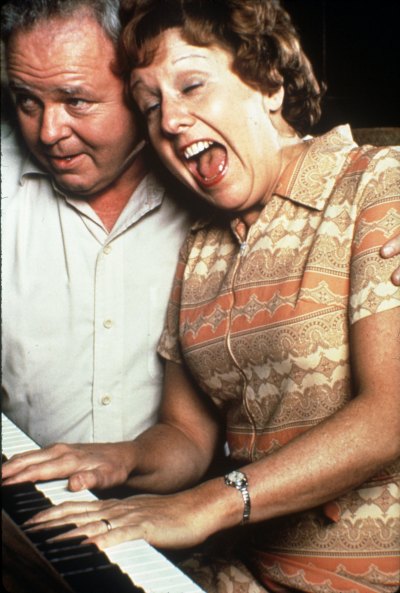
Despite the fact that he actually accomplished so much more over the course of his life, you simply cannot think of the late Carroll O’Connor without having images of Archie Bunker and, in turn, the revolutionary Classic TV sitcom All in the Family come to mind. Created by Norman Lear, All in the Family, which ran from 1971 to 1979, arrived at a time when television was changing, moving away from light-hearted fare like Green Acres and The Beverly Hillbillies to more realistic sitcoms like The Mary Tyler Moore Show, Sanford and Son and, of course, All in the Family itself.
The latter almost immediately began breaking every taboo of the medium (starting with the audience actually hearing a toilet flushing for the first time!), looking at the issues of the day through the prism of the Bunker family. The Vietnam War, President Nixon, racism, homophobia — one by one the boundaries fell in a funnily dramatic way.

The Bunkers were led by conservative bigot Archie, who finds himself in constant screaming matches with his liberal son-in-law Michael Stivic (Rob Reiner), who he not so affectionately refers to as “Meathead.” Mike’s wife, Gloria (Sally Struthers) is rapidly embracing the woman’s lib movement, and then there’s her mother, and Archie’s wife, Edith (Jean Stapleton), the kind and seemingly flighty matriarch that Archie refers to as “Dingbat.”

While Carroll knew that Archie was the role of a lifetime, he had no illusions as to who and what the man really was. In a 1972 interview with the Los Angeles Times he opined, “Archie’s a loser. People like Archie live all over the country. They may be the largest part of the American middle class. They are conservative, perhaps without understanding why. Many have what I call the ‘fine people rationale’: they believe the fine people are conservative, so conservatism is best — it puts them close to the top. Success is part of our national religion; it’s the heaven we aspire to on Earth. I don’t think we ought to be ashamed of it, but I think we ought to understand it, because it has some heavy consequences. It produces Archie Bunkers.”
Archie Bunker, as a character, is not someone that Norman Lear thought could change any more than he could change himself or his own father — who, it turns out, was one of the major inspirations for the character. “I adored my father,” Norman related to The Ithaca Journal. “And if he’s listening, he knows how much I miss him. But he was of another generation when prejudices were more pronounced, when people were saddled with bigotry which was passed down from one generation to another. And we used to argue, just as Carroll O’Connor argues on the series each week with Rob Reiner.”

Speaking to the Redlands Daily Facts in 1972, Carroll mused, “I don’t know how many Americans are as short-sighted as Archie. He’s a very ignorant man. He’s popular on the tube, because viewers enjoy watching him, but I don’t believe many of them would have him for a friend or feel that they share any of his traits. Remember, Archie is a victim, too, of his own education and background. His thinking was shaped at an early age when he was inculcated with bigotry. He got it from his parents.”

He noted that when he was a kid, he would hear racial slurs outside the home, but never inside it — his father did not tolerate racism and bigotry. Said Carroll, “A lot of bigots enjoy our show, but they must get the message that Archie is an unhappy man. He’s always bugged and not enjoying his life. The Archies of the world look down on all minorities, but some they consider worse than others. But, look, I’m not making Archie lovable. I’m making him a human being. And there’s always an element of love in a human being.”
